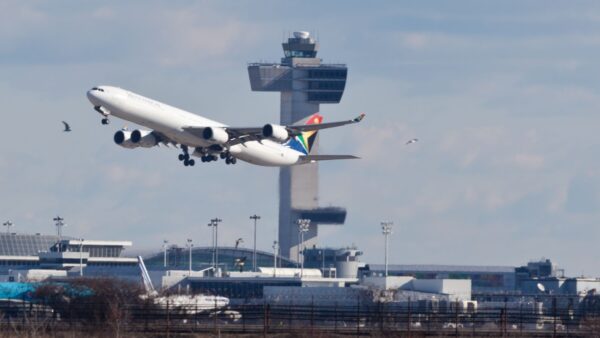Business
Aviation Expert Warns of Rising Airline Safety Risks in South Africa

South Africa’s aviation safety is under growing threat, with experts warning that the country is edging closer to a fatal air crash due to declining air traffic control systems.
Guy Leitch, aviation expert and owner of SA Flyer, has raised alarms over serious failures in key state-owned enterprises (SOEs) that are responsible for airline safety.
His warning follows the tragic Potomac River crash in Washington, D.C., where a commercial jet and a military helicopter collided, killing all 67 people on board. Early reports suggest the accident may have been caused by air traffic control staffing shortages, a challenge also affecting South Africa.
Declining Safety Systems and Aviation Risks
According to Leitch, three key SOEs—Air Traffic Navigation Services (ATNS), South African Weather Service (SAWS), and Airports Company South Africa (ACSA)—are all failing to meet their essential duties, increasing risks for passengers and airlines.
The biggest problem is with ATNS, which oversees air traffic control.
- The Civil Aviation Authority (CAA) has suspended 327 flight procedures that were designed to help pilots navigate poor weather conditions safely.
- These procedures remain unapproved because ATNS has failed to meet safety and survey requirements.
- Without these procedures, flying in bad weather becomes significantly riskier.
Although South Africa has never experienced a major jet airliner crash, Leitch warns that the likelihood of a fatal accident is increasing rapidly due to these system failures.
Transport Minister’s Response Falls Short
To address these aviation safety concerns, Transport Minister Barbara Creecy established an expert aviation panel in December 2024 to assess ATNS.
The panel identified several major problems, including:
- Critical staffing shortages in air traffic control.
- Aging communication, navigation, and surveillance (CNS) systems that are becoming unreliable.
- Suspended flight procedures due to poor maintenance.
The committee recommended:
- Urgent recruitment of air traffic control staff, a process expected to take 18 months to 3 years.
- Upgrading CNS systems to improve flight safety.
- Better governance to ensure single-point accountability.
However, Leitch is skeptical about whether these changes will be effectively implemented. He argues that the committee can identify the problems but lacks the authority to execute the necessary reforms to restore ATNS’s capabilities.
The Global Air Traffic Control Crisis
The crisis at ATNS is not unique to South Africa—there is a global shortage of air traffic controllers.
- Controllers in South Africa are overworked, which worsens stress and fatigue, making an already high-stress job even more dangerous.
- The rejected ATNS flight procedures suggest that safety standards are not being met, further increasing the risk of potential aviation disasters.
What’s Next for South Africa’s Aviation Safety?
Leitch warns that unless urgent action is taken, South Africa’s aviation safety record could be jeopardized. While commercial air travel remains statistically safe, system failures at ATNS, SAWS, and ACSA are making major accidents more likely.
The government’s next steps will determine whether South Africa strengthens its aviation safety or risks facing its first major airliner disaster.
Will reforms come fast enough to prevent a crisis? The next few months will be critical in determining South Africa’s aviation future.
Follow Joburg ETC on Facebook, Twitter , TikTok and Instagram
For more News in Johannesburg, visit joburgetc.com

















